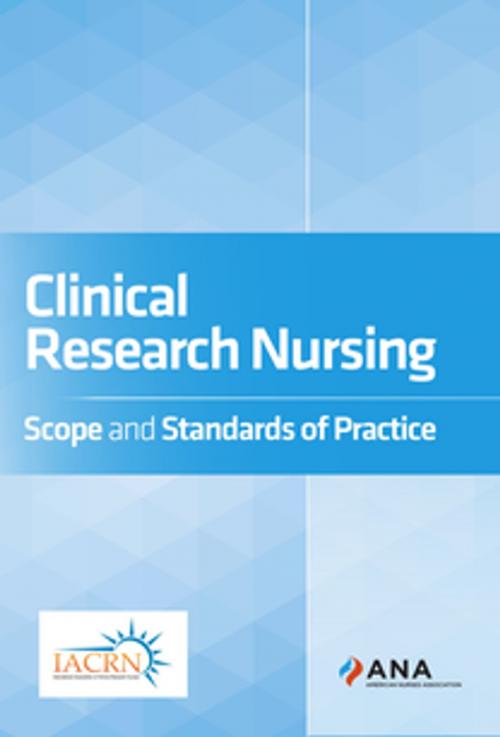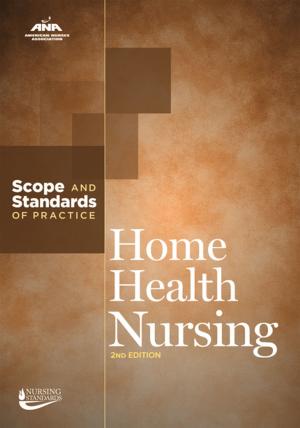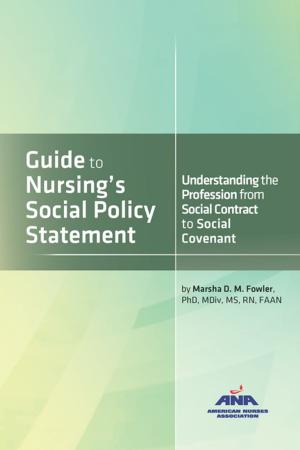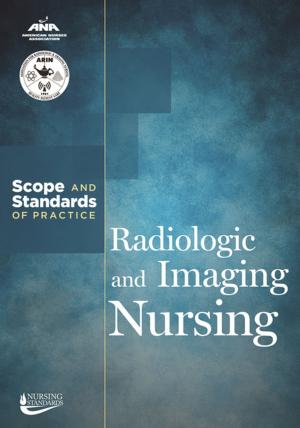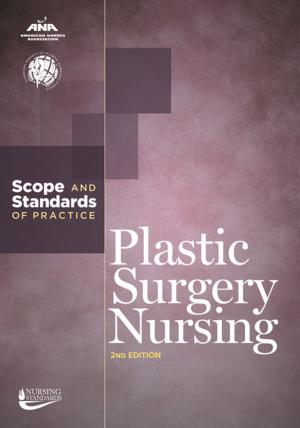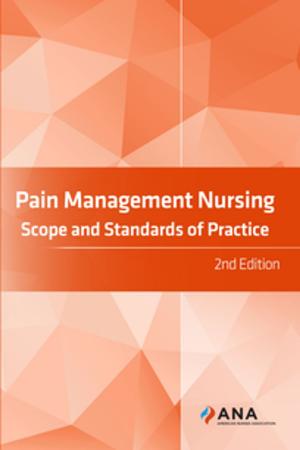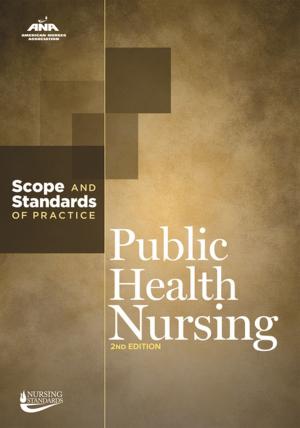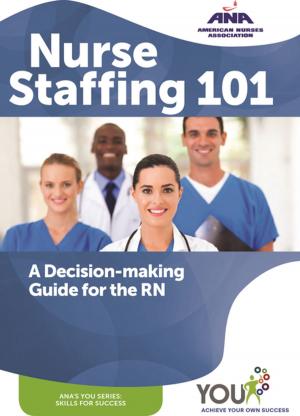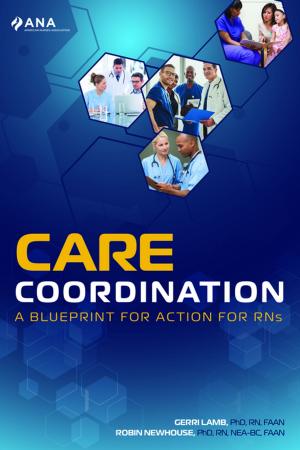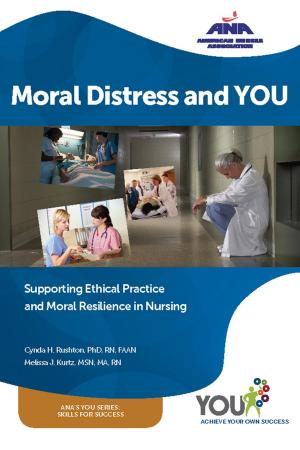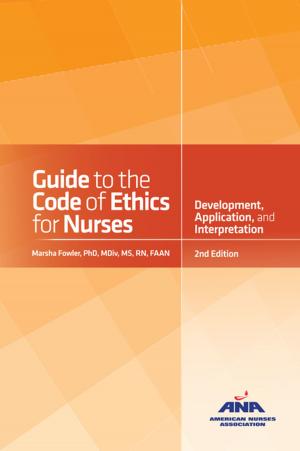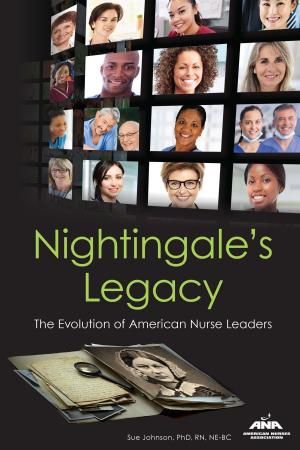Clinical Research Nursing
Scope and Standards of Practice
Nonfiction, Health & Well Being, Medical, Nursing, Research & Theory, Fundamentals & Skills, Reference| Author: | American Nurses Association, International Association of Clinical Research Nurses | ISBN: | 9781558106772 |
| Publisher: | American Nurses Association | Publication: | October 21, 2016 |
| Imprint: | Nursesbooks | Language: | English |
| Author: | American Nurses Association, International Association of Clinical Research Nurses |
| ISBN: | 9781558106772 |
| Publisher: | American Nurses Association |
| Publication: | October 21, 2016 |
| Imprint: | Nursesbooks |
| Language: | English |
Clinical research nursing focuses on the care of research participants and the protocols of clinical research and trials. The clinical researcher nurse (CRN) balances the needs of the participant and the requirements of research across settings. The result: exceptional, ethical, and safe care that yields reliable, valid data and findings, high quality research outcomes, and, in time, better quality health care. The premier resource for today’s CRN, Clinical Research Nursing: Scope and Standards of Practice is informed by advances in this specialty’s unique body of knowledge: nursing care; research regulations; scientific process; and data collection, analysis, and interpretation. It addresses the CRN practice essentials, from education and certification and professional development to ethics and tenets to practice settings and roles. Among the other topics covered: -The five practice domains: Human subjects protection; care coordination and continuity; clinical practice; management of clinical and research activities; and contribution to science and nursing science/practice -Guiding principles of CRN practice: Safety and self-determination of participants, fidelity to research protocols, compliance with regulations, and research-specific informed consent -How each of the provisions of the Code of Ethics for Nurses with Interpretive Statements apply to CRN practice -Trends and issues, including big data, electronic health records, the evidence for practice, minority involvement in clinical research, and the safety of participants, the workplace, and the public. The seventeen competency-based standards both frame evaluation of practice outcomes and goals and delineate what is expected of all CRNs. Its scope of practice—which establishes the who, what, where, when, why, and how of their practice—is the context for applying these standards. Clinical Research Nursing: Scope and Standards of Practice is a must-have for practicing or aspiring clinical research nurses and a useful resource for allied interprofessional practitioners and stakeholders.
Clinical research nursing focuses on the care of research participants and the protocols of clinical research and trials. The clinical researcher nurse (CRN) balances the needs of the participant and the requirements of research across settings. The result: exceptional, ethical, and safe care that yields reliable, valid data and findings, high quality research outcomes, and, in time, better quality health care. The premier resource for today’s CRN, Clinical Research Nursing: Scope and Standards of Practice is informed by advances in this specialty’s unique body of knowledge: nursing care; research regulations; scientific process; and data collection, analysis, and interpretation. It addresses the CRN practice essentials, from education and certification and professional development to ethics and tenets to practice settings and roles. Among the other topics covered: -The five practice domains: Human subjects protection; care coordination and continuity; clinical practice; management of clinical and research activities; and contribution to science and nursing science/practice -Guiding principles of CRN practice: Safety and self-determination of participants, fidelity to research protocols, compliance with regulations, and research-specific informed consent -How each of the provisions of the Code of Ethics for Nurses with Interpretive Statements apply to CRN practice -Trends and issues, including big data, electronic health records, the evidence for practice, minority involvement in clinical research, and the safety of participants, the workplace, and the public. The seventeen competency-based standards both frame evaluation of practice outcomes and goals and delineate what is expected of all CRNs. Its scope of practice—which establishes the who, what, where, when, why, and how of their practice—is the context for applying these standards. Clinical Research Nursing: Scope and Standards of Practice is a must-have for practicing or aspiring clinical research nurses and a useful resource for allied interprofessional practitioners and stakeholders.
